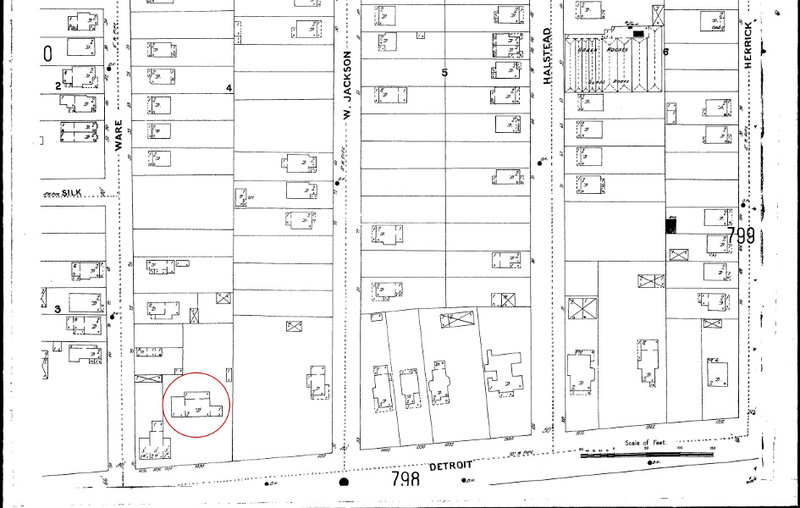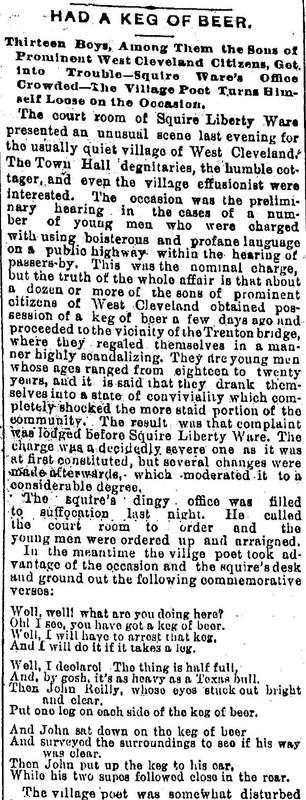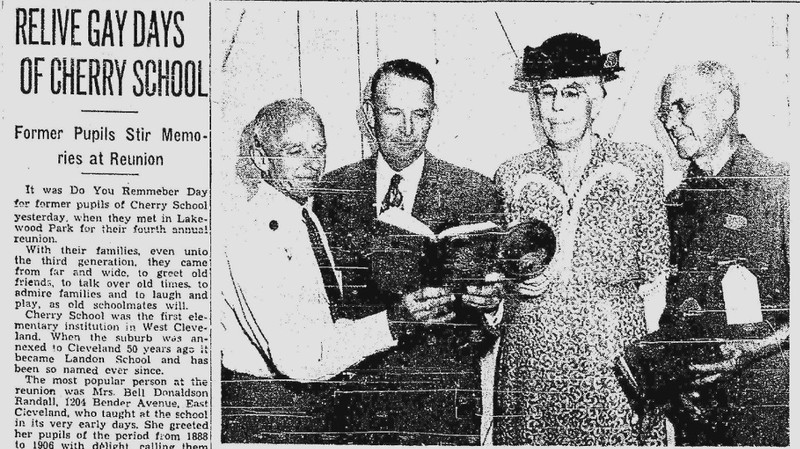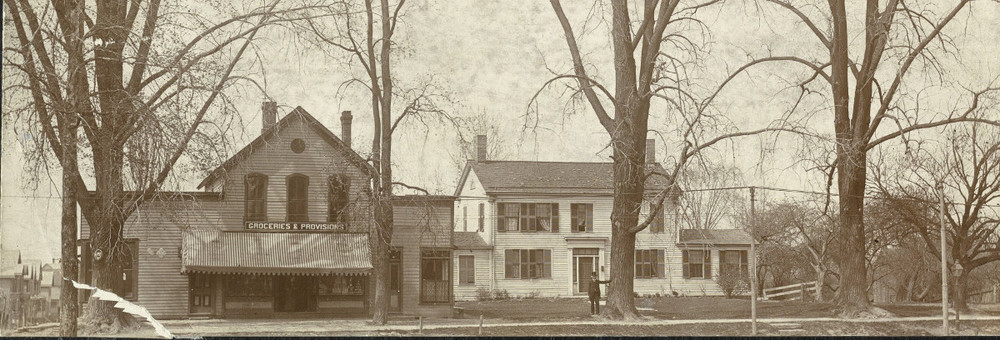Samuel White's Roadside Inn
A Stagecoach Tavern on Old Detroit Road

It's 1840 and you're traveling from Detroit to Buffalo on business. The fastest route would be by boat, straight across Lake Erie from west to east, but it's November and this shallowest of the Great Lakes is notoriously treacherous this time of the year. So you've wisely elected to take the post road that runs through the city of Cleveland, that fast-growing little commercial center about halfway along your route. You had planned to spend the night just east of Cleveland at Dunham Tavern, on the Buffalo Road, but an early winter snowstorm has kicked up and you need to find shelter quickly. Just a mile or so west of Ohio City, the other fast-growing city on the Cuyahoga River, you spot an Inn on the Detroit Road that looks inviting. The proprietor, Samuel White, welcomes you in out of the cold into a large room with a roaring fire. His son Roderick takes care of your tired and cold horse, shivering outside in the cold.
Today, most Clevelanders could identify most of the places mentioned in this imagined 1840 trip. They would know, of course, the cities of Detroit and Buffalo, if for no other reason, because they are NFL rivals of the Browns. And they would recognize Ohio City, now a trendy neighborhood on Cleveland's near west side. And many would have even heard of Dunham Tavern, said to be the oldest standing building in Cleveland and now a museum which teaches adults and children what early nineteenth-century travel was like in the Midwest.
But few, if any, in Cleveland could tell you anything about Samuel White's Roadside Inn. It is not a landmark; it is not on the National Register of Historic Places; and, yet, just like Dunham Tavern it was an important stop for travelers in the early nineteenth century. And, more importantly, it is still standing, at 9400 Detroit Avenue, in the west side's Cudell/Edgewater neighborhood. And the number of Clevelanders that could tell you that is a very small number indeed.
White, a native of Vermont who came to Cleveland as a young boy in 1804, built his Roadside Inn on Detroit Road in about 1828, when the area was part of Brooklyn Township. The Inn operated for the next two decades until 1845 when, as a result of accumulating debt, White was forced to sell it. In 1866, the Inn, which had likely closed by this time, was purchased by Samuel Ware. A farmer who had emigrated to the Cleveland area from Philadelphia, Ware used the Inn as his personal residence, but it soon became better known as the home of his son Liberty H. Ware, a lawyer and yachtsman, who during the last three decades of the nineteenth century held a variety of public offices in the Village of West Cleveland, including two terms as its mayor and several years as its justice of the peace.
During this period, the Roadside Inn-turned-residence also served as Liberty Ware's law office and, when he became justice of the peace in 1892, he used that office as his courtroom. Liberty was by all accounts one of the most colorful figures in this era of Cleveland's history and, when he was holding court, newspaper reporters flocked to his home to hear and report on the witticisms uttered by "Squire Ware." Liberty, not to be confused with his son Liberty B., died in 1910, but the house remained in the Ware family for another 50-plus years. The house underwent a substantial renovation in the period 1913-1915, which included removal of the east wing, moving the house to a new location on the lot, and adding a layer of dark brick veneer to the exterior walls. In 1969, the house was sold to the Islamic Center of Cleveland, which uses the historic building today as a house of worship and a cultural and educational center.
Images








